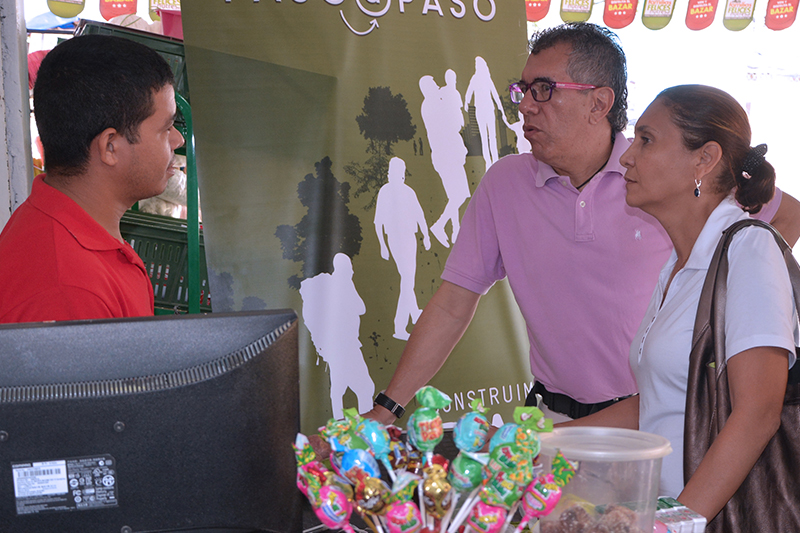 The approach of the Citizen Dimension consists in the need to understand and re-signify citizenship from its most basic sense, such as status, to an active participatory and transformative citizenship, framed in the participation in public scenarios and the construction of "new citizenships".
The approach of the Citizen Dimension consists in the need to understand and re-signify citizenship from its most basic sense, such as status, to an active participatory and transformative citizenship, framed in the participation in public scenarios and the construction of "new citizenships".
Working in the Citizen Dimension, in the case of the people going through a Reintegration Process, is the opportunity to develop processes of empowerment, approximation and establishment of trust in institutional mechanisms and channels to manage their demands through autonomous social processes and reverse the renunciation and self-marginalization to such which they assumed at the time of joining the GAO70. Thus, the collective action is the foundation of the citizen dimension, whose purpose is the reconstruction, strengthening and development of the capacities to socially relate, within legality, from the moment of demobilization, with a view to the autonomous exercise of the citizen on a permanent basis.
The Citizen Dimension connects four axes:
1. The formal mechanisms within the State which frame the recognition of belonging to a geographical and legal territory.
2. The situation of the people going through a Reintegration Process, the obligations and the legal responsibility within the framework of transitional justice, as a starting point to contribute to peace.
3. Democratic participation and the opening of institutional and community participation scenarios.
4. Reconciliation, as a goal of reintegration, since it provides sustainability to each individual's process, reduces the risk of repetition of violent acts in the context of the armed conflict and promotes peaceful coexistence and peace-building in the territories.
Summary
The purpose of this dimension is to promote the development of skills of the PPR that allow him/her to recognize himself/herself as an active and autonomous citizen from the exercise of the democratic principles, thereby contributing to reconciliation given his/her responsibility for participating in Illegal Armed Groups.
1. The PPR and his/her family acquire their documents for the recognition and exercise of civil rights and duties, access to State goods and services and political participation.
2. The PPR recognizes the implications of having belonged to an Illegal Armed Group and acts in a responsible and committed manner before the mechanisms of Transitional Justice (truth, justice and reparation, non-repetition guarantees and measures of satisfaction).
3. The PRP recognizes the State, his/her rights and duties and implements the mechanisms of democratic participation as foundations of the citizen's exercise.
4. The PRP finds meaning and participates in the reconciliation actions of his/her context as a fundamental part of his/her reintegration.
OTHER DIMENSIONS
Personal l Productive l Family l Habitat l Health l Educational l Citizen
l Security